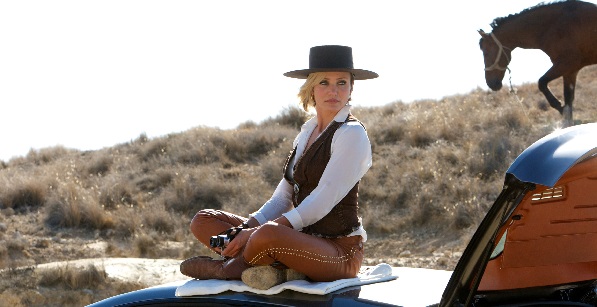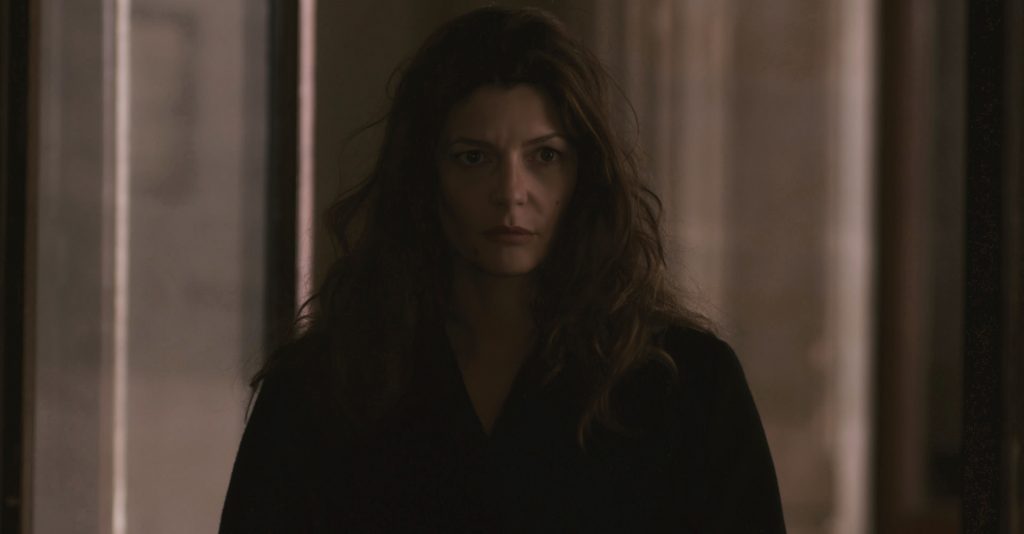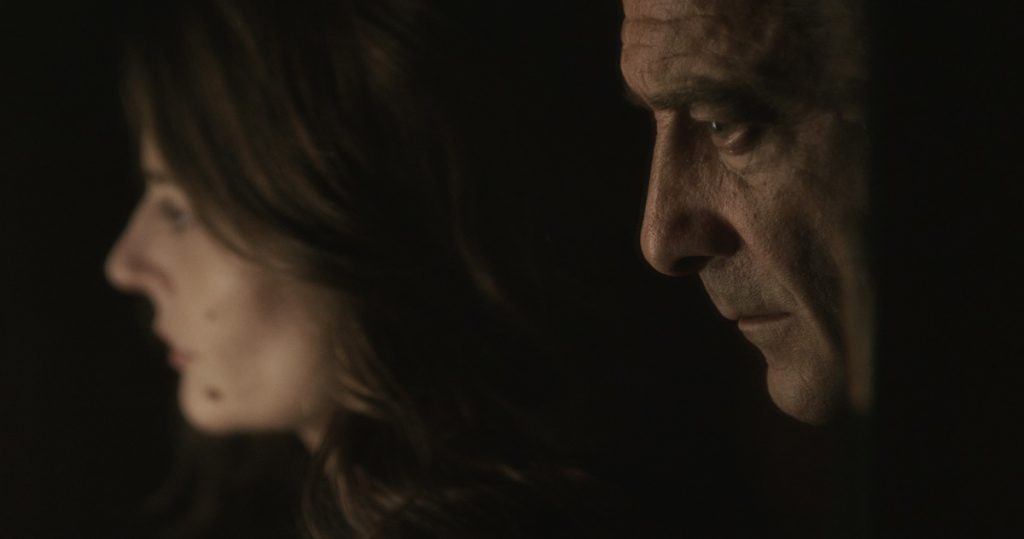The nearly simultaneous releases of The Counselor and Bastards, two elliptical thrillers that might initially appear to approach well-established crime genre tropes in similar fashions, serve to remind us yet again just how little the particulars of a film’s plot actually matter most of the time. A conventional movie plot, whether the picture in question is a star-studded prestige vehicle like The Counselor or a more intimately released art film like Bastards, is mostly a means of presenting the meat: a variety of images and sketches that are intended to emotionally stir us. Both of these films play with the viewer’s expectations of their familiar plots, often withholding information or even entire dramatic beats that many directors would find pertinent to include, and, in the tradition of films that play around with what we expect to see and receive, both The Counselor and Bastards have received polarized reviews. But, sadly, more people are talking only about The Counselor, the higher-profile and less rewarding film.
The Counselor has barely been out a week and it’s already been critically hyper-digested in a fashion that might have taken a year back in the day, barely imaginable now, before the Internet was our god. The film initially received poisonous reviews that generally claimed, correctly, that the film was a nasty, fashionably cynical muddle; a movie that represented the worst impulses of its primary auteurs, director Ridley Scott and Pulitzer Prize winning novelist-turned-screenwriter Cormac McCarthy. Unfortunately, many of these reviews were too poisonous, and these instances of hyperbole have probably emboldened The Counselor’s inevitable and eventual status as a misunderstood masterpiece within enthusiastic circles that unquestioningly accept Scott’s, and particularly, McCarthy’s artistic sainthood. To react so strongly, even negatively, to The Counselor is to weirdly overrate it, as it’s just a bad movie—a dull bit of hokum puffed up with its creators’ delusions of grandeur.
I confess that I’ve had difficulty understanding the appeal of McCarthy’s novels, which have often, particularly recently, struck me as sexist/ fatalist genre exercises that have been varnished over with self-conscious manly man mytho-poetics. McCarthy writes the kind of pop that’s pitched at people who can’t bring themselves to admit they like pop, but even his fans should be able to see what a self-parodic fraud The Counselor is. The plot follows a typically cinematic variety of lowlifes who’re sent scrambling and killing in the midst of a drug deal gone wrong, but it’s beneath a director and writer of Scott and McCarthy’s respective reputations to merely tell us a story of a drug deal gone wrong (for that story, see this year’s exceptional, bracing Drug War). Which is potentially fine, but anything that you might potentially find diverting about such a tale has been pointedly pared away in that theoretically archetypal McCarthy tradition, and with little to replace it. Almost no context of the drug deal itself is provided, and few details, apart from one or two quickly identifiable clichés (such as the Brad Pitt character’s resigned chumminess or the Cameron Diaz character’s absurd ravenous cat obsession), are imparted to us in regards to any of the half dozen prominent characters. All that remains is McCarthy’s thudding foreshadowing (most awkwardly the bolito speech and its subsequent pay-off) and overly-familiar sermonizing, some of which is admittedly quite beautiful, much more of which is convoluted and absurd. There’s also a twist near the end, which is predictable if you’re familiar with the author’s view of the world as a big steaming pile of shit, and of women as either pathetically naive lambs or deadly, emasculating vipers.
Fans of the film have celebrated its juvenile sense of bejeweled darkness—and its formal sheen of chic privileged evil is superficially impressive to behold—occasionally condescendingly implying that its detractors, deaf to the film’s poetry, are unwilling to engage with its jarring elisions and general theme of corrupt hopelessness. Bull: the Coen brothers’ film of McCarthy’s novel No Country for Old Men told virtually the same story and it was universally adored. No, detractors are unwilling to indulge The Counselor’s worldview because the film doesn’t earn it; it doesn’t have the No Country adaptation’s humor or sense of life, which imbued the de rigueur McCarthy buzzkill ending with a full breadth of tragedy (the Coens’ movie is vastly superior to the novel). The Counselor doesn’t acknowledge, much less grapple with, the issues of class or race or gender, or of even simple human error and individuality that inform the drug trade it pretends to address. Instead, Scott and McCarthy favor a reductive revel that shows all people, whether they’re an attorney in over his head, or a teenage drug runner, or a pampered ice-cold bitch goddess, as being essentially the same dull greedy automaton ripe for ultraviolent destruction.
To be fair, a case could be made that co-writer-director Claire Denis indulges a similarly pretentious approach to her narrative in Bastards. As with The Counselor, the plot is quite simple: A classically rugged noir everyman played by Vincent Lindon investigates a series of violent acts that are, of course, revealed to be worse and more personal to him than he could imagine, which, unsurprisingly, leads to his sexual and emotional tangling with a gorgeous, potentially lethal woman, who’s played by Chiara Mastroianni. Like The Counselor, Bastards elides significant narrative and character details in a manner that has, in past films (particularly Trouble Every Day), often earned Denis undeserved disapproving notices that accuse her of highlighting only the low grotesqueries of humanity.
The difference between the respective films’ methods of withholding information from the audience is considerable, however, and the contrast between them acts as a useful illustration of the varying effects of experimental elision. There’s contempt in Scott and McCarthy’s elisions, an implication that nothing about the characters, and by extension any human being at all, is worth knowing. Their film glorifies and sensualizes cynical emotional distance, particularly in the form of the Diaz character, while Bastards drains away potentially valuable context in a manner that brings us closer in to the hero, intensifying our empathy with his befuddled desperation to penetrate the heart of the debasement and abuse that haunts the film like a malevolent specter.
There’s also the important distinction that Denis is one of contemporary cinema’s poet laureates of the human body; her plotlines acting as only the loosest containments of her bleak but rapturous expressions of the body’s biologically embedded urge to connect with other bodies. The pivotal sex scene in The Counselor is a cold, smirking, pointless masturbatory fantasy, but the fleeting, hard, hot couplings in Bastards are revelatory of good quick sex as it can actually be (if we’re lucky), as Denis mines and accentuates the intricate subtleties of skin texture, of breathing methods, of the beautiful and often embarrassingly awkward work involved in achieving a physical connection that even vaguely resembles the connection of our dreams. And this striving for connection, this vulnerability, is exasperated by our frightening ignorance of the larger context the elisions deny us, rendering the eventual perversity of the third act all the more disturbing.
Bastards authentically is the movie that The Counselor pretends to be: a work purged of most of the busy conventions of genre plotting that still provides both the pleasures of genre tradition (thrilling portensions of violence, a steamy quasi-romance, a cathartic tragic ending) and of the more authentic and mysteriously free-form (the aforementioned studies of the behaviors of flesh). Denis carefully prunes away plot structures that she’s moved beyond as an artist, while Scott and McCarthy simply strip their enterprise of anything that might disrupt their ironically tranquil ode to their smug, self-congratulatory apathy.







